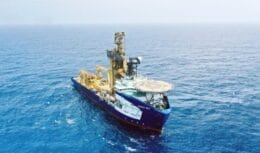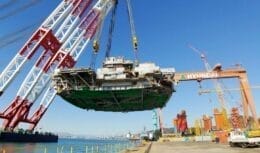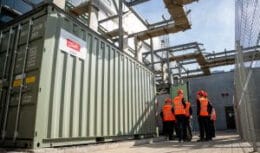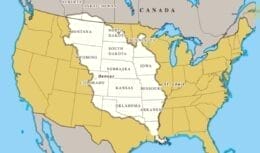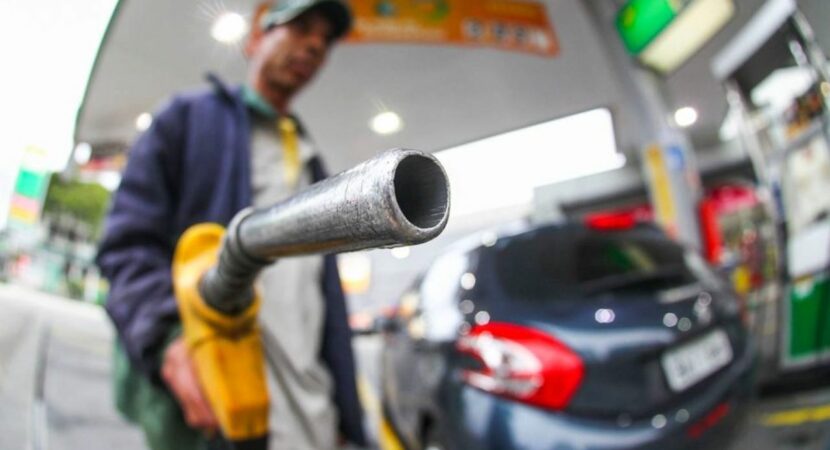
Shortly after Petrobras readjusted the prices of gasoline and diesel at refineries, Governors want to end the freezing of ICMS on fuels and who pays is the consumer's pocket
After a new readjustment in the prices of gasoline and diesel, Governors want to end the freezing of ICMS charged on fuels. The end of the measure will be discussed in the second half of January by the National Committee of State and Federal District Finance Secretaries (Comsefaz). The current freeze is in effect until the end of this month.
Read also
- The rise in the price of Petrobras' fuel does not prevent Repar from breaking a monthly gasoline sales record in Paraná and Santa Catarina; state-owned refinery delivered 3,7 million m³ of product to distributors
- After 77 days without increases, Petrobras is under pressure to increase the price of gasoline and diesel starting tomorrow (12/01) to ensure that the market continues to be supplied on an economic basis and without risk of shortages
- On the other hand, the Arab fund Mubadala, owned by the crown prince of Abu Dhabi, which bought the Mataripe Refinery (RLAM) from Petrobras, confronts the price movement of the state-owned company and will not reduce the price of gasoline
- Direct sale of ethanol from plants is approved by the Senate and promises to stimulate competition and curb the increase in gasoline prices at gas stations
Majority of governors decide to unfreeze ICMS
A part of the governors defends the end of the freeze because, until today, neither the government nor Petrobras presented a proposal to cushion increases in the price of gasoline and diesel fuels. The subject still divides the heads of state executives.
The decision to freeze ICMS on fuel was taken last year by governors as a response to President Jair Bolsonaro's criticism of the states, attributing to them also the responsibility for the rise in gasoline and diesel prices in Brazil. According to the state company, prices skyrocketed last year because of the rise in oil prices on the international market.
Petrobras makes another readjustment in the price of gasoline and diesel
After the readjustment announced by Petrobras on Wednesday (12), the first increase in 77 days, some governors highlighted that it was clear that the states are not largely responsible for the skyrocketing in fuel prices.
“Increasingly clear, who raises the price of fuel in Brazil are the increases of Petrobras”, said the governor of Piauí, Wellington Dias (PT). “We have always maintained that the value of fuel has to do with the dollarization of oil and the binding made in Brazil,” he added.
The governor recalled that the states froze ICMS on fuel for 90 days, between November 1st of last year and January 31st of this year and, according to him, “even so, the increases continue”. He criticized the lack of a “sustainable proposal by Petrobras and the government” to reduce price instability
Some governors, however, defend an extension of the freeze so that, when Congress returns to work, a project to reduce the instability in fuel prices is again discussed.
High ICMS is one of the main factors for the increase in fuel prices
The collection of ICMS on fuel is one of the factors of strong instability between the Bolsonaro government and the governors. The tax is defined and collected by state governments.
On the one hand, Bolsonaro usually cites the high ICMS as one of the main factors for the increase in fuel prices. On the other hand, the governors hit back, blaming the instability in the world oil market and the crises generated by Bolsonaro – which put pressure on the value of the dollar in the country.
Petrobras' current readjustment policy is based on changes in the price of oil and the dollar. The president has also criticized the state-owned company's rule and pressed for changes. The Brazilian oil company, however, says that the floating price guarantees the company's profitability and prevents shortages.
Fund to stabilize prices
The Government is studying the creation of a Gasoline and Diesel Price Stabilization Fund, which would be used to cushion increases in periods of instability.
The measure has not yet been adopted because the Ministry of Economy questions how the fund would be formed. According to the proposal under preparation in the Ministry of Mines and Energy, it would be funded with taxes levied on oil exploration, such as royalties and special participation, in addition to the product's export tax.
In periods of excessive increases, the fund's resources will be passed on to Petrobras to cover its costs and profitability, preventing them from being passed on to consumers.

